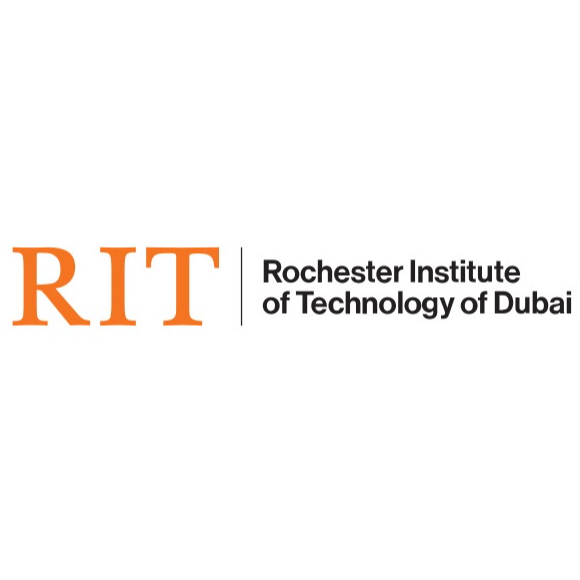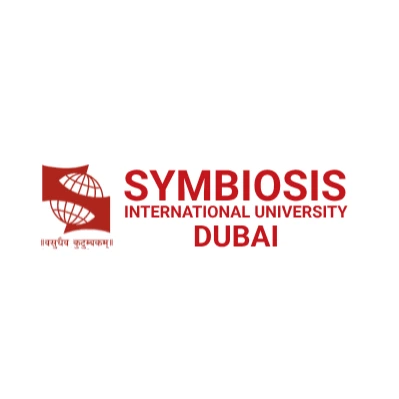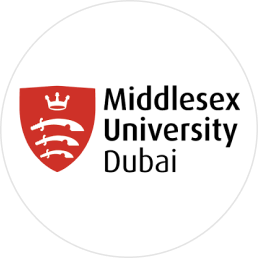
Home > Study in UAE > Rochester Institute of Technology - Dubai Campus > Master of Science in Electrical Engineering
Master of Science in Electrical Engineering
 Rochester Institute of Technology - Dubai Campus, UAE
Rochester Institute of Technology - Dubai Campus, UAE

AED 117000
Annual Tuition Fee

Free
Application Fee

12 months
Duration

6.5
IELTS

79
TOEFL

55%
Min GPA
Program Overview
Rapidly developing global technologies are changing the way we live. The Master of Science (MS) in Electrical Engineering at RIT Dubai combines theoretical fundamentals and practical applications in this dynamic field and educates students in the practices, methodologies, and cutting-edge techniques used in electrical engineering including Artificial Intelligence. Students will build on experience of engineering and focus their studies in AI/Robotics, Communications, or Smart Energy while working closely with electrical engineering faculty in a contemporary and applied research area.
The MSEE degree requires the completion of 30 credits divided between required core courses, focus area courses, electives, and thesis/graduate paper. The degree requirements are shown in the following program chart.
Students can customize their degree plan to meet their preferences under the general MSEE degree option as shown in the leftmost column of the program chart. The chart also demonstrates how students may be able to select a specific subset from the available electives to focus their studies in AI Systems with application to smart energy, control/robotics, or communications if enough of the relevant courses are offered in the desired track during their duration of study. However, the declaration of a focus area is not required and is used for advising purposes to help students initiate research in a focus area, but not required for degree completion and selected focus areas won’t appear on students’ transcripts. All students will be certified against the general MSEE degree requirements. Note that the core courses are common to all options and that the focus area courses are a subset of the general MSEE elective courses.
For the general MSEE option, students are required to take three core courses (EEEE-602, 707, and 709) and choose 5, 6, or 7 elective courses based on their choice of thesis, graduate paper, or comprehensive exam, respectively.
For the MSEE degree with a focus area, students are required to take the above three core courses and advised to take five focus-area courses as shown in the program chart if all focus-area courses are offered during their span of study. Students opting for the thesis option don’t need to take additional courses. Students opting for graduate paper or comprehensive exam option are required to take one or two additional electives, respectively. Note that students are advised to follow a focus area where possible but they need not to declare one for their degree completion. Focus areas won’t appear on students’ transcript.
Program Educational Objectives
The Master of Science (MS) in Electrical Engineering Program Educational Objectives (PEO) are broad statements that describe what graduates are expected to attain within a few years of graduation. Program educational objectives are based on the needs of the program’s constituencies. The Electrical Engineering faculty, in conjunction with its constituents, has established the following program educational objectives:
- PEO 1: Graduates will have specialized training in a concentrated field of study and develop professional attributes that include communication skills, and ethics to deal with the impact of technology in a global and societal context.
- PEO 2: The program will foster an environment that encourages independent thinking and creativity that prepares them to pursue doctoral degrees in electrical engineering or related disciplines.
Program Learning Outcomes
- (Independent Thinking) Demonstrate the ability to work independently in developing innovative solutions in Electrical Engineering.
- (Discipline Focus) Establish a proficiency in a concentrated course of study and research in a subfield of Electrical Engineering.
- (Communication) Demonstrate the ability to communicate effectively in written and oral forms.
Additional Information
Program Level Master's Degree
College/University Processing Time 7 Days
Program Format Full-Time
General Admission Requirement
Academic Requirement
Minimum Level of Education Required: To be accepted into this program, applicants must have a Bachelor’s Degree.
Similar Programs


Western International College at University of Bolton - Ras Al Khaimah Campus
Intake Sep 2025
Feb 2025

Application Fee

Duration
Test Score
6.5
IELTS
0
TOEFL
60
Min GPA


Western International College at University of Bolton - Ras Al Khaimah Campus
Intake Sep 2025
Feb 2025

Application Fee

Duration
Test Score
6.5
IELTS
0
TOEFL
60
Min GPA


Curtin University - Dubai Campus
Intake Sep 2025, Sep 2026

Application Fee

Duration
Test Score
6
IELTS
0
TOEFL
60
Min GPA


Curtin University - Dubai Campus
Intake Sep 2025, Feb 2026, Sep 2026
Feb 2025

Application Fee

Duration
Test Score
6.5
IELTS
0
TOEFL
50
Min GPA


Curtin University - Dubai Campus
Intake Feb 2026
Feb 2025

Application Fee

Duration
Test Score
6
IELTS
0
TOEFL
50
Min GPA


Curtin University - Dubai Campus
Intake Sep 2025, Sep 2026

Application Fee

Duration
Test Score
6
IELTS
0
TOEFL
60
Min GPA


Rochester Institute of Technology - Dubai Campus
Intake Aug 2025
Jan 2025

Application Fee

Duration
Test Score
6.5
IELTS
79
TOEFL
55
Min GPA


Rochester Institute of Technology - Dubai Campus
Intake Aug 2025
Jan 2025

Application Fee

Duration
Test Score
6.5
IELTS
79
TOEFL
55
Min GPA


Rochester Institute of Technology - Dubai Campus
Intake Aug 2025
Jan 2025

Application Fee

Duration
Test Score
6.5
IELTS
79
TOEFL
55
Min GPA


Rochester Institute of Technology - Dubai Campus
Intake Aug 2025
Jan 2025

Application Fee

Duration
Test Score
6.5
IELTS
79
TOEFL
55
Min GPA


Rochester Institute of Technology - Dubai Campus
Intake Aug 2025
Jan 2025

Application Fee

Duration
Test Score
6.5
IELTS
79
TOEFL
55
Min GPA


Rochester Institute of Technology - Dubai Campus
Intake Aug 2025
Jan 2025

Application Fee

Duration
Test Score
6.5
IELTS
79
TOEFL
55
Min GPA


Rochester Institute of Technology - Dubai Campus
Intake Aug 2025
Jan 2025

Application Fee

Duration
Test Score
6.5
IELTS
79
TOEFL
55
Min GPA


Symbiosis International University - Dubai Campus
Intake Sep 2025
Feb 2025

Application Fee

Duration
Test Score
6
IELTS
79
TOEFL
50
Min GPA


Symbiosis International University - Dubai Campus
Intake Sep 2025
Feb 2025

Application Fee

Duration
Test Score
6
IELTS
79
TOEFL
50
Min GPA


Symbiosis International University - Dubai Campus
Intake Sep 2025
Feb 2025

Application Fee

Duration
Test Score
6
IELTS
79
TOEFL
50
Min GPA


Middlesex University - Dubai Campus
Intake Sep 2025

Application Fee

Duration
Test Score
6.5
IELTS
87
TOEFL
55
Min GPA


Middlesex University - Dubai Campus
Intake Sep 2025

Application Fee

Duration
Test Score
6.5
IELTS
87
TOEFL
55
Min GPA


Middlesex University - Dubai Campus
Intake Sep 2025, Jan 2026

Application Fee

Duration
Test Score
6
IELTS
72
TOEFL
55
Min GPA


Middlesex University - Dubai Campus
Intake Sep 2025

Application Fee

Duration
Test Score
6.5
IELTS
87
TOEFL
55
Min GPA
Tuition Fee
The values given below are estimated figures, excluding extra charges like material fee, student activity fees, athletic fees, health care, etc., for courses. To know more, please visit the Programs page.
Average Tuition Fee Per Year
117000
Tuition Fee
(AED)
Free
Application Fee
(AED)
25000 Per year
Average Cost of Living
(AED)
The living costs include the total expenses per month, covering accommodation, public transportation, utilities (electricity, internet), books and groceries.
Check program website for more information about funding options.
Not sure what you are looking for?
Don’t worry, we are here to help.
Popular Universities to Study Abroad
World class education waiting for you.
.webp)
Dubai, UAE • 81 Programmes
Tuition Fee : AED 45500 - 58200 / year

Dubai, UAE • 59 Programmes
Tuition Fee : AED 68500 - 82500 / year

Dubai, UAE • 10 Programmes
Tuition Fee : AED 42000 - 42000 / year
.png)

Dubai, UAE • 26 Programmes
Tuition Fee : AED 12700 - 53500 / year
Top Places To Study In Canada
Province wise Popular university and colleges for Studying abroad.
Popular English Language Proficiency Exams
Blogs and Articles
Curated content to keep you updated on the latest education trends, news and more.
Intakes in Dubai for Indian Students
Updated on • May 27,2025 03:34 PM IST • Study in Dubai









